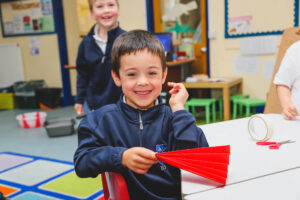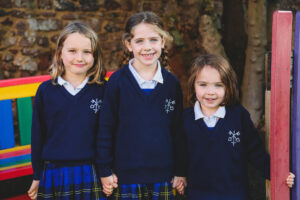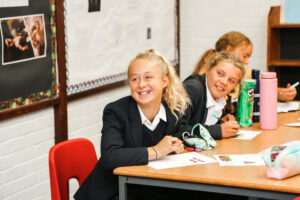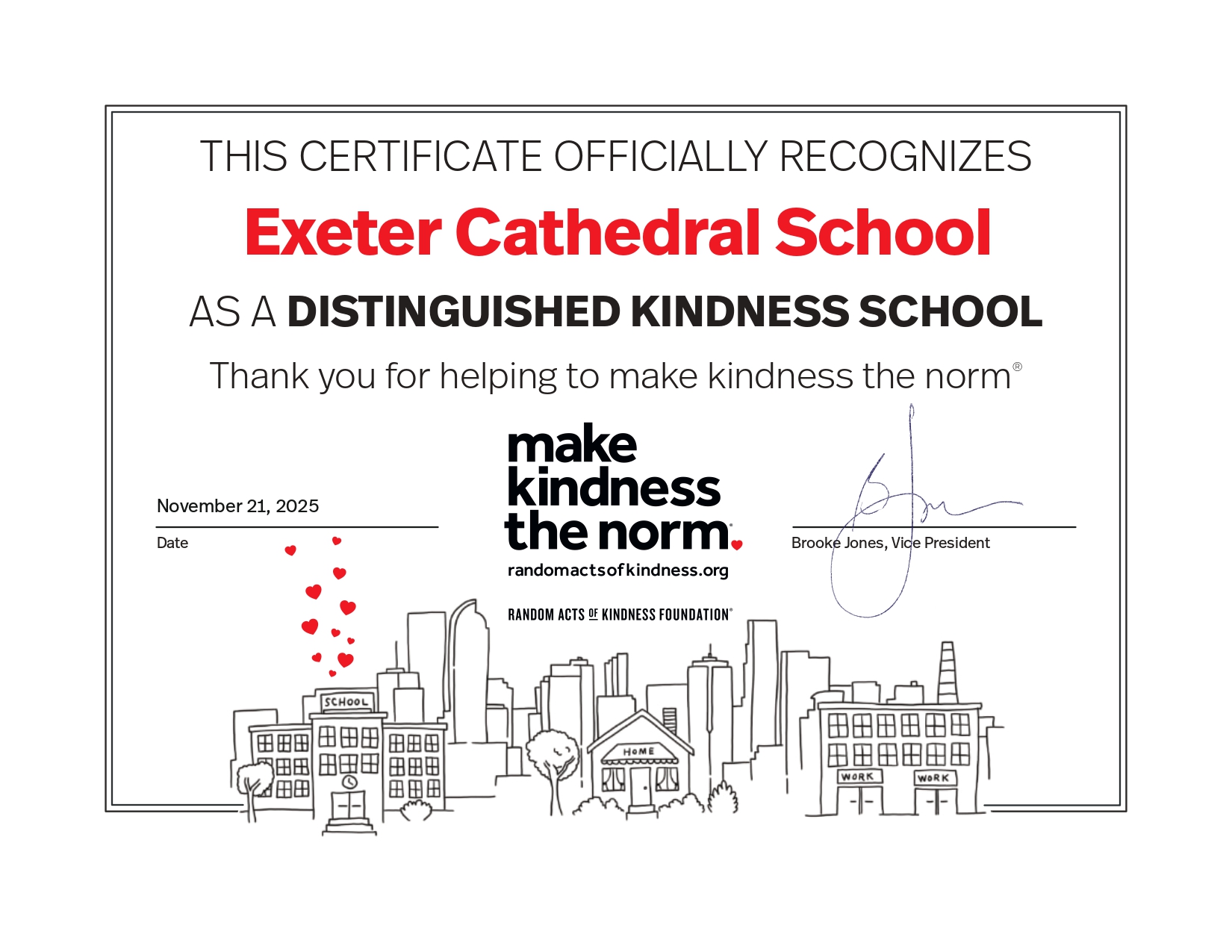We held our Autumn Open Morning this week, and we looked to our pupils to be the tour guides for our visiting families. They did a terrific job, and I received some lovely feedback. Here is what one of our visitors offered – unsolicited – about their tour experience:
‘Both of the young people who showed us round were excellent ambassadors for the school and super tour guides. I just wanted to mention that that I was particularly impressed with the young lady (I’m so sorry, she had an unusual name and I can’t remember what it was). At one point she spotted a crisp packet on top of a bush. Her hand shot out and grabbed it and she shoved it in her pocket without a word. I thought that showed such initiative and pride in her school – I think she should be commended for it.’
(The alleged unusually-named tour guide, by the way, was Rosalila [Year 8] and her accomplice was Peter B [Year 6] – very well done indeed to them both.)
At ECS we really value Pupil Voice – and pupil leadership is a significant strand of that. Towards the end of their time in Year 7, pupils hear a talk about the leadership roles available in their final year, and are invited to apply. They are asked to write a letter (max 2 sides of A4) outlining their suitability and motivation. I read all of those letters – they are always superb. Some are hand-written, some are word-processed, and each has its own particular style. They all show evidence of plenty of thought and hard work, and are set-out commendably with date, address and appropriate salutation.
The notion that we should be divvying up our 12-year-old potential leaders into groups of ‘can’ and ‘cannot’ sits uncomfortably with me. We may as well name these groups ‘opportunity’ and ‘access denied’. Yes, in selecting our pupil leadership team we consider ‘leadership qualities’ (what a vague notion that is) – but how can we expect children to show these qualities if they don’t have the opportunity to live up to our trust in them? Schools are places of learning: these roles are as much about opportunity and growth as they are about the duties they are tasked with. We are, after all, in the business of helping our pupils acquire the right habits for life: we cannot expect them to acquire habits they haven’t yet had a chance to form.
So, everyone who applies is awarded a place on the team. We have three groups of prefects – one for each term – and in this way the pupils have their opportunity to step up and lead their year-group.
Those rolling teams of prefects are overseen by a permanent team of Heads of School, Deputy Heads of School, Heads of Pupil Voice and Senior Boarder; and the Cathedral appoints Senior Choristers. These are seen as the ‘top spots’ – year-long posts of influence and contribution. Having this tiered approach I hope encourages opportunity for all whilst also providing routes for the most ambitious. I also hope that it dispels the notion that to offer all of our 12-13 year-olds the chance to have a stab at being a leader is to wokishly-devalue the seniority of the role and the integrity of the process.
All staff from across the School are involved in selecting the make-up of this senior team, and, following a written review process and a meeting, we announce those top positions.
We did away with the titles ‘Head Boy’ and Head Girl’ several years ago – that had always struck me as a pretty dated and pre-scriptive set of parametres. This year our two Heads of School are both female – because they emerged from the process as the two most suitable candidates. We are mindful, too, of representation: what sort of a pupil leadership team will our younger pupils be looking up to? Will they see themselves represented? Is the team a diverse mix? And so it is that our pupil leadership team – senior positions and otherwise – is made up of boys, girls, choristers, athletes, bookworms, thespians, mathmos, musos, the loud, the quiet, new pupils, old hands, the serious, the hilarious, the organised, the scatty, the specialist and the all-rounder. A broad range of people and personalities all united by their willingness to serve their school and by our trust in them to do so.
Pupil leadership is not about authority, privilege or being in charge: it is about responsibility, service and setting an example. Our pupils are here to learn – about themselves, about others, and about the world around them – and as COP26 reaches the half-way mark, it is worth reminding ourselves that it is our collective job to give them that opportunity as best we can.
James Featherstone
Headmaster







